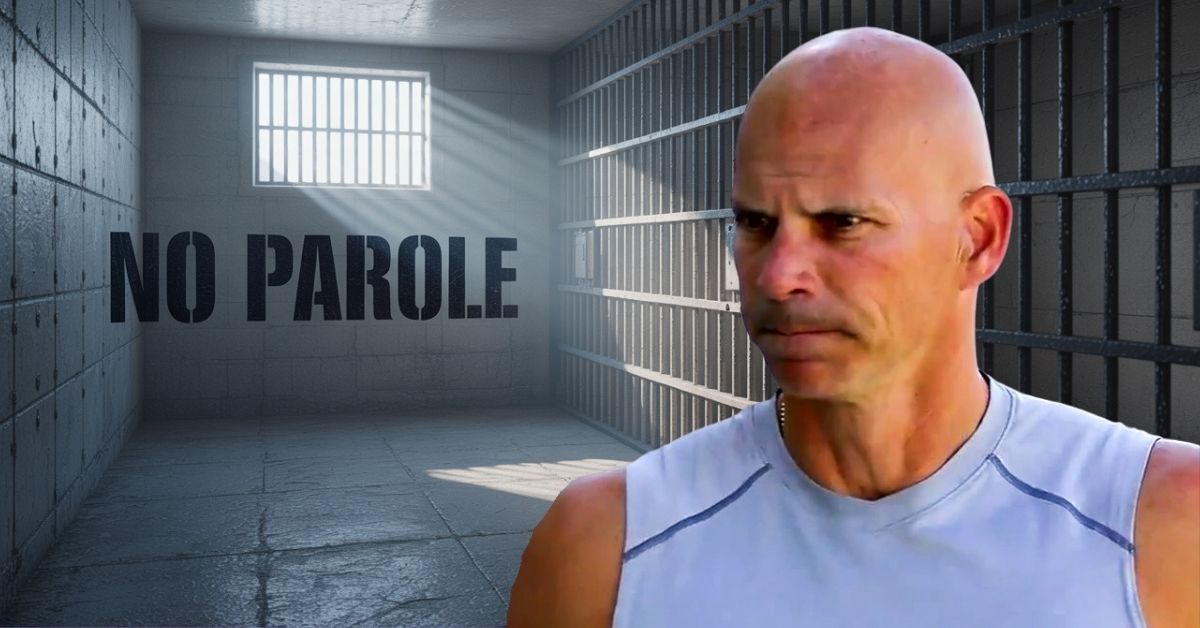Lyle Menendez was denied parole during his first-ever parole hearing on Friday, just one day after his younger brother Erik faced the same devastating outcome. The 57-year-old appeared before the California Board of Parole Hearings via video conference from the Richard J. Donovan Correctional Facility in San Diego, where both brothers are currently incarcerated.
The parole board’s decision means that both Menendez brothers will remain behind bars for at least another three years, marking a crushing defeat for their attorneys, supporters, and family members who have spent the past two years advocating for their release. The brothers were convicted in 1996 for the brutal shotgun murders of their parents, Jose and Kitty Menendez, in their Beverly Hills mansion in 1989.
Prison Violations Influence Parole Decision
The parole denial centered heavily on Lyle Menendez denied parole findings related to his recent misconduct while incarcerated, particularly his unauthorized use of cell phones in prison. Deputy District Attorney Ethan Millius questioned whether Lyle had genuinely taken accountability for his conduct, citing his inability to follow basic rules while in a highly structured setting.
When you look at him, Lyle has a long-documented history of lies made to avoid the consequences of his own actions, Millius argued during the hearing. A prison psychiatrist also determined that Menendez exhibited antisocial characteristics, including a sense of entitlement, deceitfulness, manipulation, and an unwillingness to accept responsibility for his actions.
Brothers’ Claims of Self-Defense and Abuse
During the hearing, Lyle Menendez expressed remorse for his actions while maintaining the brothers’ long-standing claim that they acted in self-defense following years of sexual and emotional abuse by their father. He testified that he was sexually abused by his father Jose Menendez from ages 6 to 8. Prosecutors, however, have consistently portrayed the Menendez brothers as greedy individuals who meticulously planned the murders to inherit their parents’ wealth.
For a deeper dive into true-crime analysis, see my coverage on BrandonBent.com, where I explore legal battles and high-profile murder cases.
Legal Victory Preceded Parole Hearings
The parole hearings became possible after a significant legal victory in May, when a Los Angeles judge approved a reduction of the brothers’ sentences from life without parole to 50 years to life. This resentencing made them eligible for parole under California’s youth offender laws, as they were 18 and 21 years old at the time of the murders.
The case has experienced renewed public interest in recent years, partly due to documentaries and media coverage examining the brothers’ claims of abuse. Eighteen family members spoke at Erik’s hearing on Thursday, advocating for his release and describing him as a gentle soul.
Erik Menendez’s Parole Also Denied
Erik Menendez’s nearly 10-hour parole hearing on Thursday ended with commissioners quickly returning a denial decision. The board cited multiple factors, including Erik’s illegal use of cellphones in prison and burglaries he participated in before the murders. Commissioner Robert Barton noted that the decision stemmed more from Erik’s behavior while incarcerated rather than the severity of his offense.
Future Options for the Brothers
Both brothers will be eligible for parole again in three years, though they can petition for administrative review within one year and potentially move up to a hearing in as soon as 18 months. Another potential avenue for freedom lies with Governor Gavin Newsom, who retains clemency power to pardon or release the Menendez brothers at any time.
The denial of parole for both brothers represents a significant setback in their quest for freedom after more than three decades behind bars. Their case continues to captivate public attention as one of the most notorious family murder cases in American criminal history. For more information about California’s parole system, readers can visit the California Courts website.
Sources















